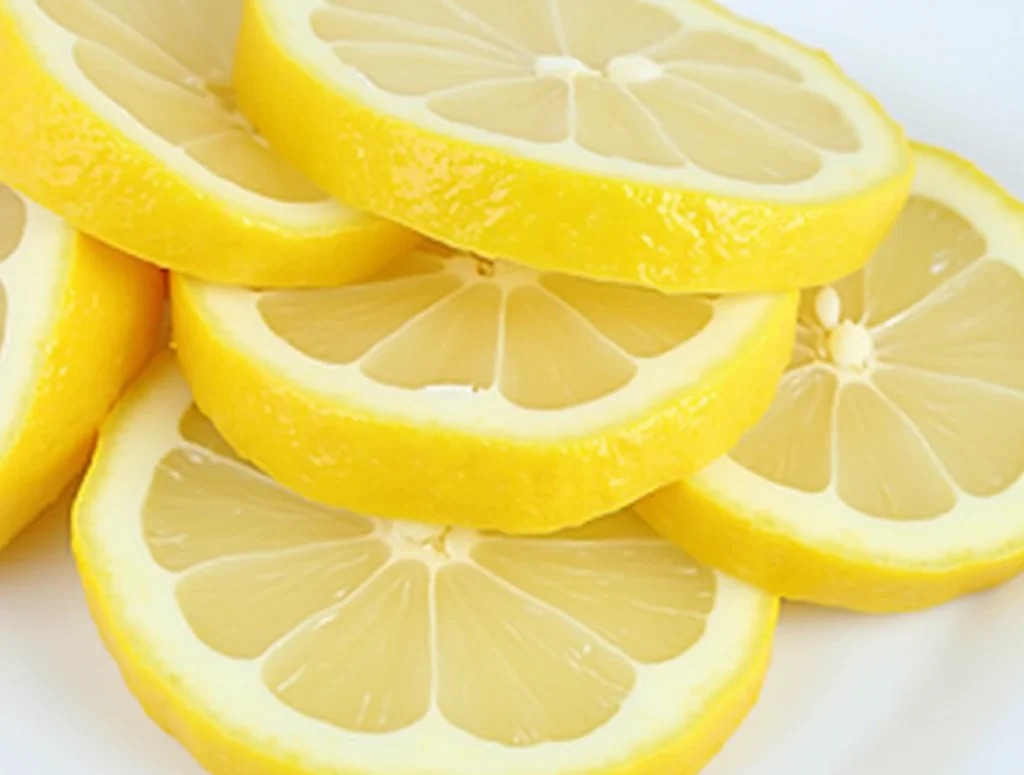Table of Contents
You’ve probably been tossing your lemon peels into the trash after juicing your fruit, but have you ever stopped to wonder what you might be missing? Lemon peels are packed with health benefits and have a wide variety of uses that go beyond their typical discardable status. From cooking to home remedies, these peels hold hidden treasures that can elevate your meals, improve your well-being, and even help with household chores. In this article, we’ll dive into the numerous ways you can use lemon peels to enhance your life, making them a staple in both your kitchen and natural wellness routine.
Introduction: Unlock the Potential of Lemon
When you think of lemons, your first thought likely revolves around the juicy, tangy fruit inside. But the outer peel, often overlooked and thrown away, contains a wealth of nutrients and benefits that deserve attention. Whether you’re aiming to brighten up your dishes with fresh zest, improve your skin with a natural remedy, or cut down on harsh chemicals in your home, lemon peels are an incredible addition to your routine. In this guide, you’ll learn how to maximize the potential of lemon peels for cooking and home remedies—helping you reduce waste and boost your health along the way.

Why Lemon Are So Beneficial
Lemon contain a powerful array of nutrients, vitamins, and antioxidants. Understanding these benefits can encourage you to start incorporating lemon into your daily habits.
Packed with Vitamin C
Lemon are a great source of Vitamin C, which is vital for your immune system, skin health, and overall well-being. A single lemon can provide a significant amount of this antioxidant, which helps protect your body from free radicals.
Rich in Fiber
The peel of a lemon is rich in fiber, which aids digestion and supports bowel health. Consuming fiber helps regulate your digestive system, prevent constipation, and even manage your cholesterol levels.
Loaded with Antioxidants
Lemon contain flavonoids, which have anti-inflammatory and antioxidant properties. These help protect your cells from damage, reduce inflammation, and can potentially lower the risk of chronic diseases.
Low in Calories
Lemon peels are low in calories and high in nutrients, making them an excellent addition to any healthy eating plan. Whether you’re watching your calorie intake or just looking for healthy ingredients, lemon peels are an ideal option.
How to Use Lemon in Cooking
Lemon are more than just a byproduct of juicing. They can elevate the flavors of your meals and add an unexpected twist to your dishes. Here’s how you can start using them in cooking.
Zesting Lemon Peels for Flavor
Lemon zest is the outermost layer of the peel, and it’s packed with essential oils that provide a burst of lemony flavor. You can use lemon zest in various recipes to give your dishes a fresh, citrusy kick:
- Baked Goods: Add lemon zest to cakes, muffins, or cookies to introduce a bright citrus flavor that complements the sweetness.
- Salads: Grate lemon peel and sprinkle it over salads for a refreshing, zesty bite.
- Dressings and Sauces: Add zest to vinaigrettes and sauces for an extra layer of flavor.
Lemon Garnishes
Lemon peel can serve as a beautiful and aromatic garnish for a wide variety of dishes and drinks:
- Cocktails: Twist a strip of lemon peel to garnish cocktails like martinis, mojitos, or lemon drops.
- Soups and Stews: Add strips of lemon peel to your soup or stew while cooking for a rich, citrus-infused broth.
- Roasted Vegetables: Top roasted vegetables with lemon peel strips for added flavor and visual appeal.
Infusing Drinks with Lemon
Lemon can be infused into drinks to provide a delightful, refreshing flavor:
- Lemon Peel Tea: Simply boil lemon peel in water for 10 minutes to create a soothing tea. Add honey or ginger for extra flavor.
- Infused Water: Add lemon peel to water for a refreshing, vitamin C-rich drink. You can also combine it with cucumber or mint for an even fresher taste.
- Lemon-Infused Olive Oil: Steep lemon peels in olive oil to create a fragrant oil that’s perfect for salads or pasta.
Recipes Featuring Lemon
Here are a few easy recipes where lemon peels take center stage:
| Recipe | Ingredients | Instructions |
| Lemon Peel Pesto | 1 cup fresh basil, 1/4 cup lemon peel, 1/4 cup olive oil, 2 tbsp pine nuts | Blend all ingredients until smooth. Use as a topping for pasta or bread. |
| Lemon Peel Marmalade | 2 lemons (peeled), 1 cup sugar, 1 cup water | Boil the lemons and sugar until thick. Pour into jars and refrigerate. Use as a spread for toast or desserts. |
| Lemon Peel Chicken | 2 chicken breasts, 1 lemon peel, garlic, olive oil, rosemary | Rub chicken with lemon peel, garlic, and rosemary. Roast in the oven until cooked. |
Lemon for Home Remedies
Beyond the kitchen, lemon peels are a natural solution for various health and wellness needs. Here are some ways lemon peels can be used for home remedies:
Natural Detox and Cleansing
Lemon peels are often used as a detox agent, helping your body cleanse and flush out toxins:
- Lemon Peel Water: Drinking lemon peel-infused water can help flush out toxins and improve digestion. The high fiber content of the peel also supports bowel regularity.
- Liver Health: Lemon peels contain compounds that may help detoxify the liver, promoting healthy liver function.
Skincare Benefits
The citric acid in lemon peel can help brighten and exfoliate your skin:
- Brightening Face Mask: Combine lemon peel powder with honey or yogurt to create an exfoliating mask that brightens your complexion.
- Acne Treatment: Applying lemon peel juice directly onto acne-prone skin can help reduce inflammation and prevent future breakouts.
Lemon for Pain Relief
Lemon peels contain natural compounds that may help reduce inflammation and relieve pain:
- Headache Relief: The scent of lemon peel has been shown to alleviate headaches and reduce stress, making it a natural remedy for tension headaches.
- Sore Muscles: Apply lemon peel directly to sore muscles to help ease discomfort, or use it in an aromatherapy diffuser for pain relief.
Lemon for Cleaning
Lemon peels are not just for health – they are also excellent natural cleaners:
- All-Purpose Cleaner: Soak lemon peels in vinegar and use the solution as a natural cleaner for countertops, sinks, and more.
- Air Freshener: Boil lemon peels with a few cloves or cinnamon sticks to create a pleasant, all-natural air freshener for your home.
How to Store Lemon Peels
Lemon peels can be stored in a few simple ways to ensure they stay fresh and ready for use:
- Freezing: Freeze lemon peels in an airtight container for up to six months. You can use frozen peels directly in cooking or to make tea.
- Drying: Dry lemon peels by placing them in a dehydrator or in a low-temperature oven. Store the dried peels in an airtight container for later use in teas or as flavoring.

Tips for Using Lemon Peels:
- Use Organic Lemons: Always opt for organic lemons to avoid pesticides or chemicals on the peel.
- Dry and Store: If you can’t use your lemon peels right away, dry them out by placing them in a dehydrator or oven. Store them in an airtight container for later use in teas, cleaners, or baking.
- Combine with Other Citrus: Experiment by combining lemon peel with orange or lime peel for a unique citrus blend.
- Don’t Waste: Make sure to use the peel of the lemon in ways that enhance your life—whether for your skin, kitchen, or cleaning routines!
Conclusion: Embrace the Power of Lemon Peels
Lemon peels are far more than just waste material; they are an incredibly versatile and nutritious ingredient that can elevate your cooking, improve your health, and reduce the need for harsh chemicals in your home. From infusing drinks and teas to serving as natural remedies for your skin and body, lemon peels should become a staple in your kitchen and wellness routine. Next time you reach for a lemon, remember to save the peel—your body, your meals, and your home will thank you for it.
Frequently Asked Questions (FAQs)
1. Can you eat lemon peels?
Yes, lemon peels are edible and packed with nutrients. They are best used when zesting or incorporated into recipes, drinks, or as a natural remedy.
2. How do I use lemon peels for skincare?
Lemon peels contain citric acid and antioxidants, making them great for brightening skin. Use them as part of a homemade mask or apply the juice directly to acne-prone areas for best results.
3. How can lemon peels aid digestion?
Lemon peels contain fiber that supports digestion. Drinking lemon peel-infused water or using it in recipes can help promote digestive health.
4. Can I use lemon peel for cleaning?
Yes! Lemon peels have natural antibacterial and anti-fungal properties, making them an excellent option for homemade cleaning solutions. Use them in a vinegar-based cleaner or simmer them for a fresh, natural air freshener.
5. How do I store lemon peels for later use?
To preserve lemon peels, you can freeze them or dry them. Freezing them allows you to use them for months, while dried peels can be stored in an airtight container for future use.

